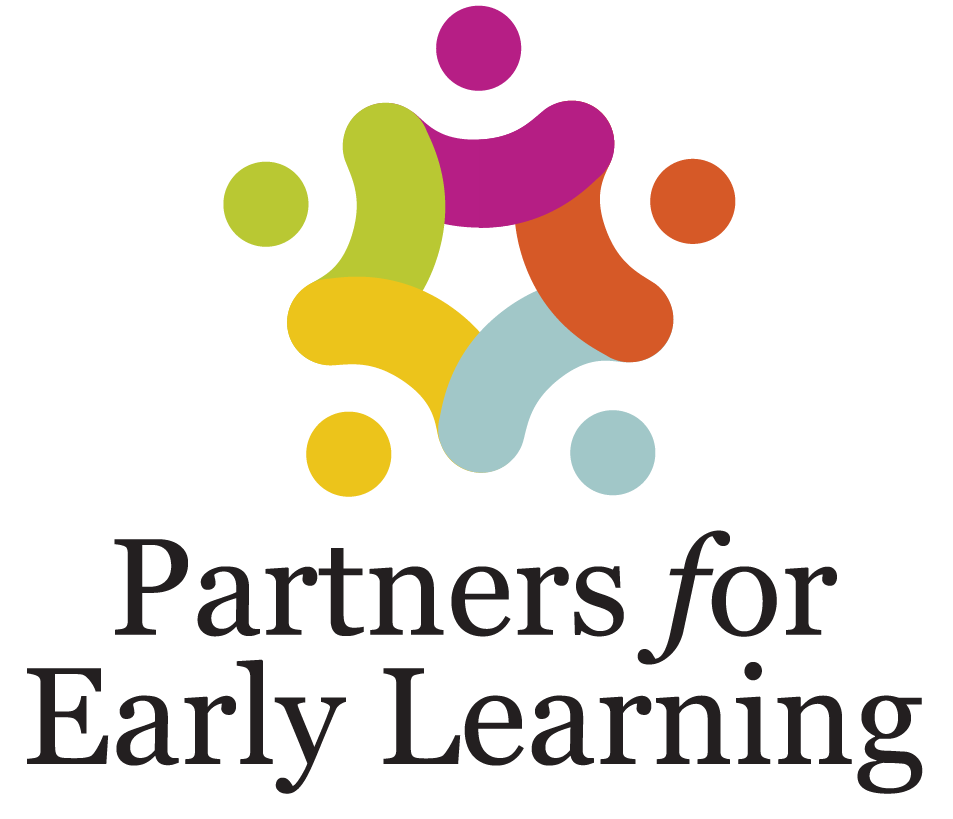Age
Age Milestones For 6-12 Months
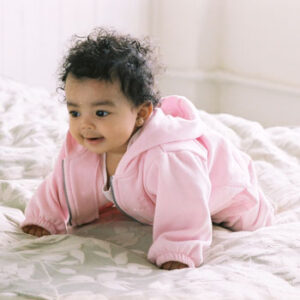
Physical: Overview (6-12 Months)
Between 6 and 12 months, babies reach many important milestones. Most can sit without support and eventually become mobile, from
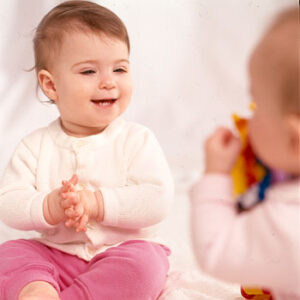
Can Sit Alone (7-10 Months)
At this age, most babies are stable and can sit for longer periods of time. This is a major achievement,

Crawls Forward on Belly (8-10 Months)
Between 8 and 12 months of age, babies are in constant motion. They arch their necks to investigate their surroundings when
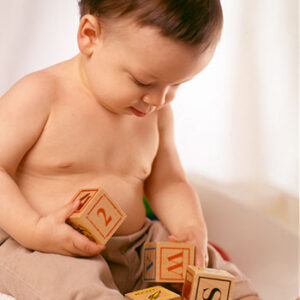
Lets Objects Go Voluntarily (8-11 Months)
As babies gain the skills to open and close their fingers, they often delight in dropping and throwing small objects. They
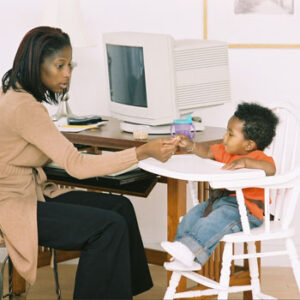
Uses Pincer Grasp (8-11 Months)
At 8 months, most babies have not acquired the hand and finger skills to use the pincer grasp, instead clumsily
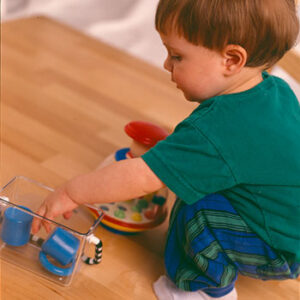
Places Objects Into and Out of Containers (8-12 Months)
As they approach 12 months, babies use their improved coordination to thoroughly investigate the objects they encounter, picking them up,
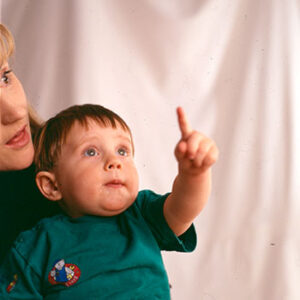
Capable of Poking with Index Finger (8-13 Months)
Most babies around 12 months use their improved coordination to thoroughly investigate the objects they encounter, picking them up, banging
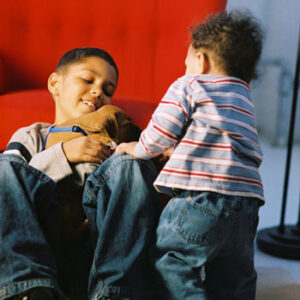
Walks Holding onto Furniture (9-11 Months)
Although crawling gives babies a new perspective on the world around them, they observe people walking and strive to do
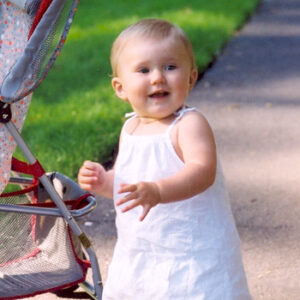
Stands Alone Easily (10-12 Months)
Babies will learn to stand momentarily without support until they have enough confidence to stand for longer periods and eventually
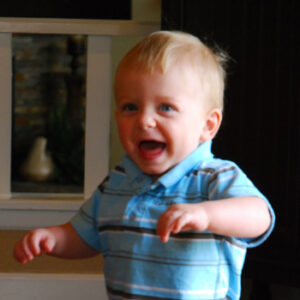
Begins Walking Alone (10-13 Months)
At first, a baby may walk with his feet wide apart to help with balance. As he becomes more confident,
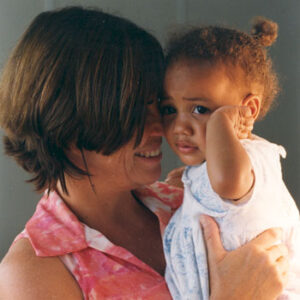
Social and Emotional: Overview (6-12 Months)
Are you my mother? Between 6 and 12 months, most babies show signs of fear around strangers. They also are
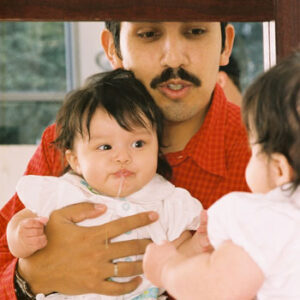
Becomes Interested in Mirror Images (5-7 Months)
Visual awareness increases during months 4 through 7, and babies begin to notice new aspects of their environment. During this
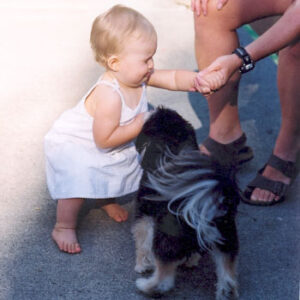
Begins to Show the Emotion of Fear (6-8 Months)
Around 6 to 8 months, most children begin to show fearfulness. Fear develops later than other “basic” emotions because certain
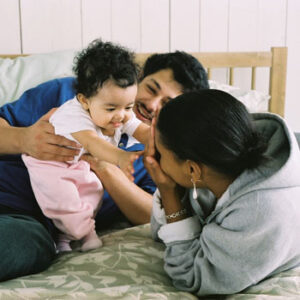
Develops Stronger Preferences for People and Toys (7-12 Months)
Between 8 and 12 months, babies begin displaying stronger preferences for certain people and select their favorite toys, which they
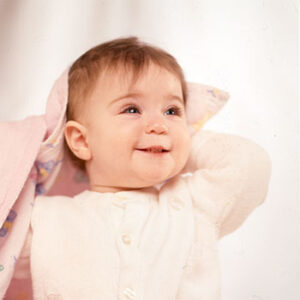
Imitates People during Play (8-12 Months)
Although babies are capable of imitating some facial expressions at birth, they become increasingly able to copy adult actions and
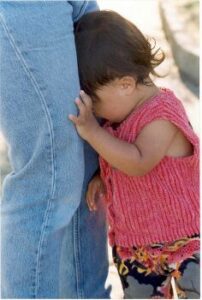
Becomes Increasingly Shy or Anxious with Strangers (8-13 Months)
At around 7 to 8 months, most children begin to show fearfulness around unfamiliar people. This is called stranger anxiety
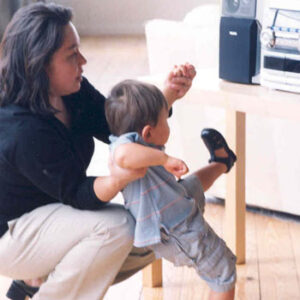
Begins to Test Parental Responses to Behavior (8-15 Months)
Babies are intensely curious about parental responses to their behavior. At this young age, babies begin to do things around
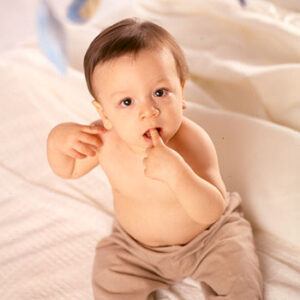
Begins to Look to Others’ Emotions before Acting, Termed “Social Referencing” (9-15 Months)
Starting around 8 to 10 months, children begin to look at the facial expressions of others to help themselves decide
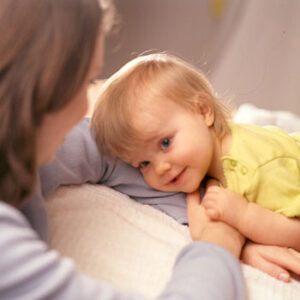
Prefers Primary Caregiver above All Others (9-15 Months)
As babies approach their second year of life, they show sustained preferences for the mother and/or regular caregiver above all
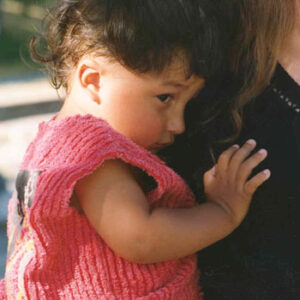
Separation Anxiety Increases (10-18 Months)
Around 6 to 8 months, most children begin to show distress when they are away from their primary caregivers. This
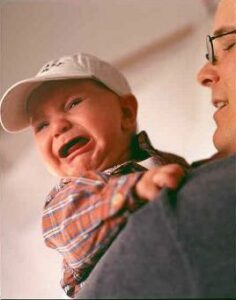
I Want My Mommy
I don’t know you! Scotty is eight months old, and he’s a cheerful and outgoing baby. He always smiles at
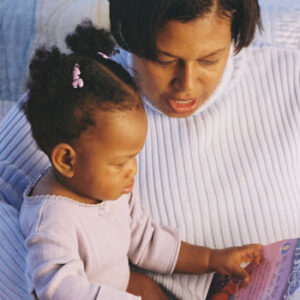
Cognitive and Learning: Overview (6-12 Months)
Between six and twelve months, babies eagerly explore the world around them. When they’re not playing peek-a-boo, they will grab
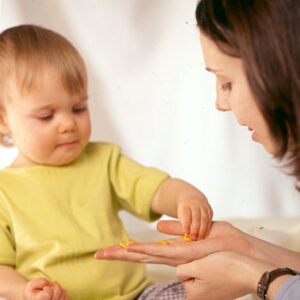
Can Perform Simple Addition and Subtraction Exercises (5-10 Months)
Several studies have shown that infants understand some basic concepts about numbers. By around 5 months, infants show surprise when

Acquires the Notion of Object Permanence (That a Hidden Object Still Exists Even If One Can’t See It) (7-12 Months)
Before 8 months, a baby will think that an object has disappeared if it is covered or hidden from view.

Memory Improves (8-12 Months)
At around 8 months, there is a change in the way that infants remember. Before, they could recognize objects and
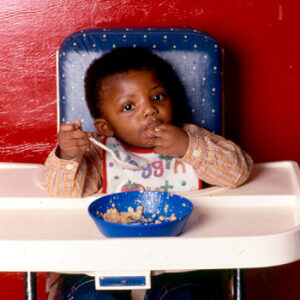
Attempts to Use Objects “Correctly” (Using a Phone, Drinking from a Cup, etc.) (8-15 Months)
Between 8 and 12 months of age, babies become increasingly conscious that items have names and particular functions associated with
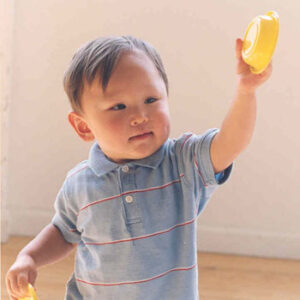
Explores Objects in Many Different Ways (Shaking, Banging, Throwing, Dropping) (8-16 Months)
As they approach their first birthday, babies begin experimenting with everything they find: dropping, rolling, shaking, throwing, submerging, or waving
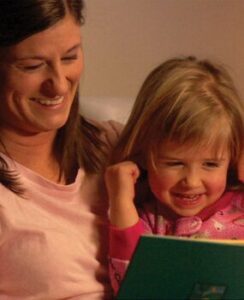
Take a Break with Books
Cereal is on the floor, the laundry is piled high, and your toddler comes to you with her favorite book
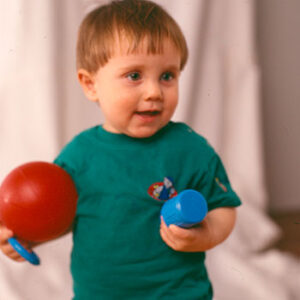
Can Distinguish between Two vs. Three Objects (9-12 Months)
By 7 months, infants can tell the difference between different numbers of objects and match the number of sounds they
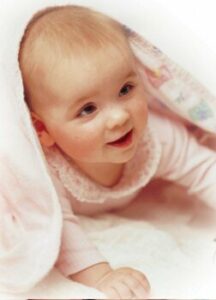
Peek-A-Boo
Young children are great explorers From birth to age five, children learn an astonishing amount about how the world works.
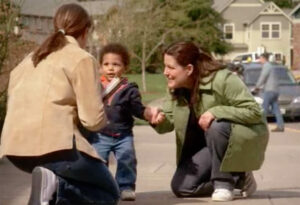
Careful, Frank: Communicating through Emotional Expressions (2-24 Months)
As adults, we do this all the time to obtain feedback from the world around us, but it’s fascinating to
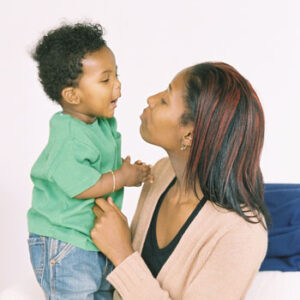
Language and Communication: Overview (6-12 Months)
Between 6 and 12 months, babies are actively processing the language sounds they hear. They are learning to take “turns”
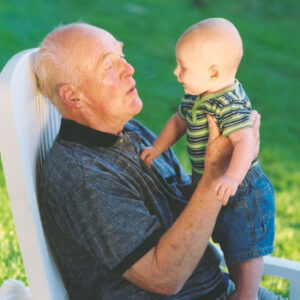
Capable of Responding to Own Name (4-5 Months)
A baby’s name is generally used much more often than other words. Studies show that babies are early as 4
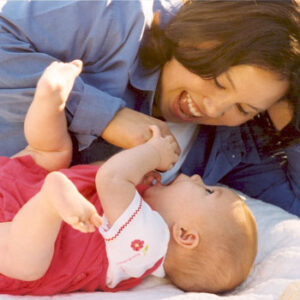
Attempts to Respond to Sounds by Making Sounds (4-7 Months)
By 4 months, many babies begin listening for the individual sounds in words, noticing how vowels and consonants combine into
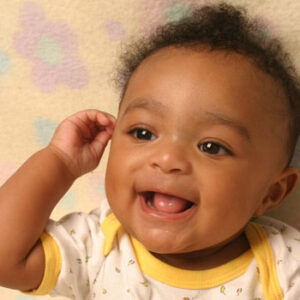
Can Verbalize Happiness and Displeasure (4-7 Months)
Babies begin voicing their emotions and desires frequently at 5 or 6 months, laughing to show pleasure and crying when
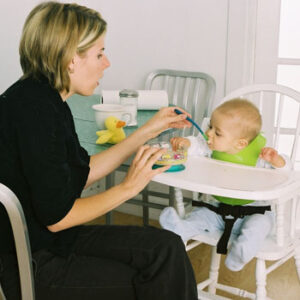
Capable of Responding to “No” (5-7 Months)
Although children don’t yet understand what words mean, they may stop doing something when a parent or caregiver says “no.”
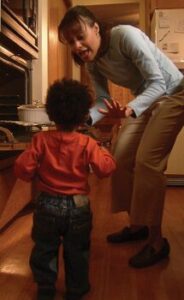
Mommy, Is This Okay? (6-12 Months)
Guiding your baby with your facial expressions and words. Eleven-month-old Cameron can walk, and he can go just about anywhere
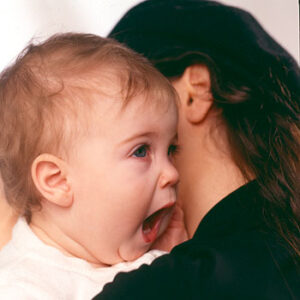
Responds To and Begins To Map Sounds of Language (6-12 Months)
Between 6 and 12 months, babies can literally “hear” the specific sounds of all languages spoken. When compared to adults,
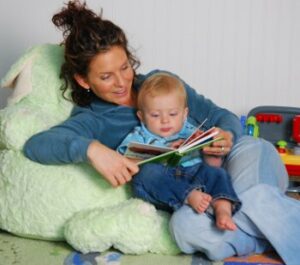
Snuggle Up for Reading (6-24 Months)
“Mommy! Mommy! Book! Book!” he says before you tuck him in for an afternoon nap. You grab his favorite book,
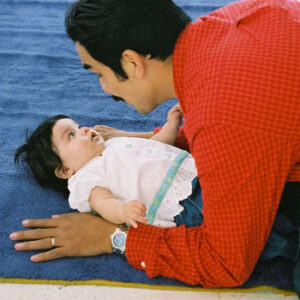
Babbling Includes Short Strings of Consonants (6-9 Months)
By 4 months, babies begin listening for the individual sounds in words, noticing how vowels and consonants combine into syllables,
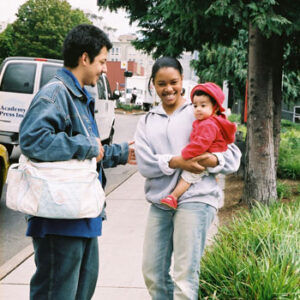
Learns to Wait until Someone Else Is Finished Talking before Beginning to Speak (7-10 Months)
During their first 6 months, infants will often coo or babble while their caregivers are talking to them. By 7
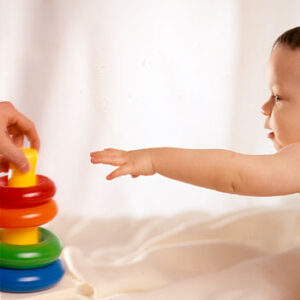
Can Respond to Simple Verbal Requests (8-10 Months)
Even though babies often say their first words at around 12 months, most have learned quite a few words by
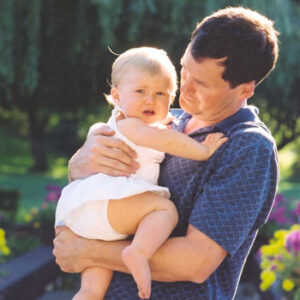
Begins to Use Gestures and Sounds to Communicate (8-11 Months)
By 8 to 10 months, babies attempt to communicate with others using gestures and pre-verbal sounds. There are two common
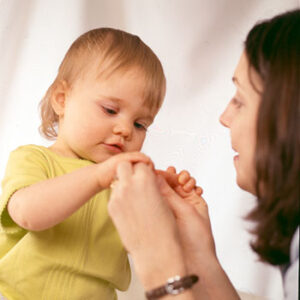
Capable of Uttering “Dada” and “Mama” (8-12 Months)
Between 8 and 12 months, babies may stumble on words like “mama” and “dada” accidentally, learning what they mean when

Begins to Understand that Words Can Refer to Physical Objects (9-12 Months)
Around 9 months, many infants understand that some words refer to specific objects. Although they can’t yet speak words, many
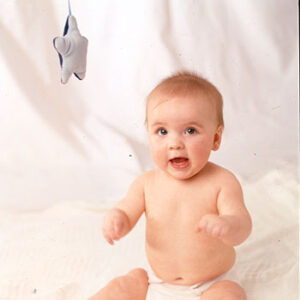
Babbling Appears Less Random; Inflections Apparent (9-14 Months)
Between 8 and 12 months, the coos, gurgles, and other “baby” sounds become more like the sounds of the home
